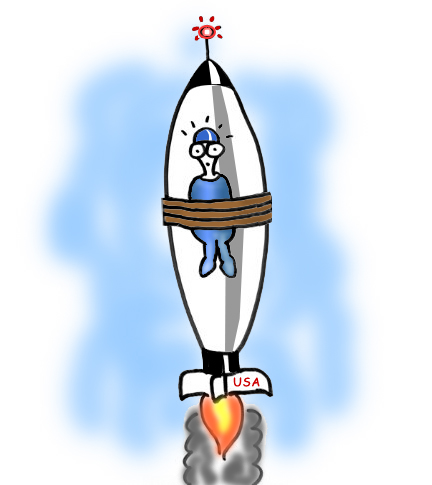 A few years ago there was a movie entitled Failure to
Launch starring Matthew McConaughey and
Sarah Jessica Parker. The plot went something like this: McConaughey played a
35-year old man who had never left his parents’ home. He had several friends
who were also living with their parents and had no intention of leaving. Parker
plays a professional con artist of sorts. She is hired by McConaughey’s parents
to show interest in him, build up his confidence, help him experience life
outside of their house so he will move out on his own. The problem is, no
matter what she tries, Parker just cannot convince him to leave his father and
mother. You can rent the movie to see the rest.
A few years ago there was a movie entitled Failure to
Launch starring Matthew McConaughey and
Sarah Jessica Parker. The plot went something like this: McConaughey played a
35-year old man who had never left his parents’ home. He had several friends
who were also living with their parents and had no intention of leaving. Parker
plays a professional con artist of sorts. She is hired by McConaughey’s parents
to show interest in him, build up his confidence, help him experience life
outside of their house so he will move out on his own. The problem is, no
matter what she tries, Parker just cannot convince him to leave his father and
mother. You can rent the movie to see the rest.
Although this movie was not Oscar caliber, it does portray a
sticking point with many people today. I’m not going to comment on the
stay-at-home-man/child syndrome as much as I will the business equivalent.
There is a growing trend of people charged with making marketing decisions for
their company who are engaging in "no-risk” business. In other words, no matter
how much you may try to sell your customer on a product or service that you
have shown them will help their business, they cannot bring themselves to a
decision point. They avoid the issue. They request more and more and more
information. They want the job quoted and re-quoted. On and on they stall. The
problem is, they become the greatest obstacle to their own business growth. In
the end, making no decision is really casting your vote for your competition to
beat you.
Business is risky. It has always been so, but during an
economic downturn like we have experienced over the past two years, it is even
more so. An adverse business environment certainly can be trying to the
decision makers when you are talking about your marketing efforts. But an
adverse market can also be helpful. It tests what really works for you in
marketing. Let me explain. In very good economic times, companies will part
with marketing dollars to pay for fluff marketing. They will put up with
someone telling them that they will gain business by putting their logo on a
stress ball, ads on shopping carts, sponsoring the local bowling team, or any
myriad of other methods that waste marketing dollars. In the hard times,
every marketing dollar counts. You have to make sure you are being effective
and dare not waste your limited resources. While this creates the failure to
launch scenario we have already illustrated, it should engage the decision
maker all the more in the marketing process. British Prime Minister Benjamin
Disraeli stated, "There is no education like adversity.”
Here are some points to focus on when thinking about
marketing during adverse times.
1. Look
for the return on your investment. Understand the link your marketing
efforts have to your bottom line. If you cannot trace this link from
advertising to sales, you should change your advertising method.
2. Focus
on what will work after the economy rebounds. During the hardest economic
days of the past century, some of the most innovative products came about.
The invention of nylon and a number of plastics came about during the
Great Depression of the 1930s. The personal computer was born in the 1970s
but really took off during the recession of the early 80s.
3. Take a
look at what smart people are doing. There are businesses that are still
marketing very well despite the bad economy. What are they doing that you
are not?
4. Ask
yourself what would really make you want to buy your own product. Take a
good look at the ways you are trying to market it. Would they convince you
to buy?
5. Don’t
be a marketing idiot! If you do not market your business, it will die. In
adverse times, you cannot just sit back and let indecision reign. You have
to move forward or you will become a casualty of your own failure to
launch.
_________________________
Thinkexist.com Benjamin Disraelis quotes
http://thinkexist.com/quotation/there_is_no_education_like/192104.html